Strengthening Families Through Effective Parenting Interventions
Understanding Growth Mindset
Instilling a growth mindset in children is a transformative journey that empowers them to view challenges as opportunities for growth. But how do parents play a role in this development? This article explores the concept of a growth mindset, its vital role in childhood development, and how parent training can equip parents with the tools to nurture this mindset in their children.
The Fundamental Concept of a Growth Mindset
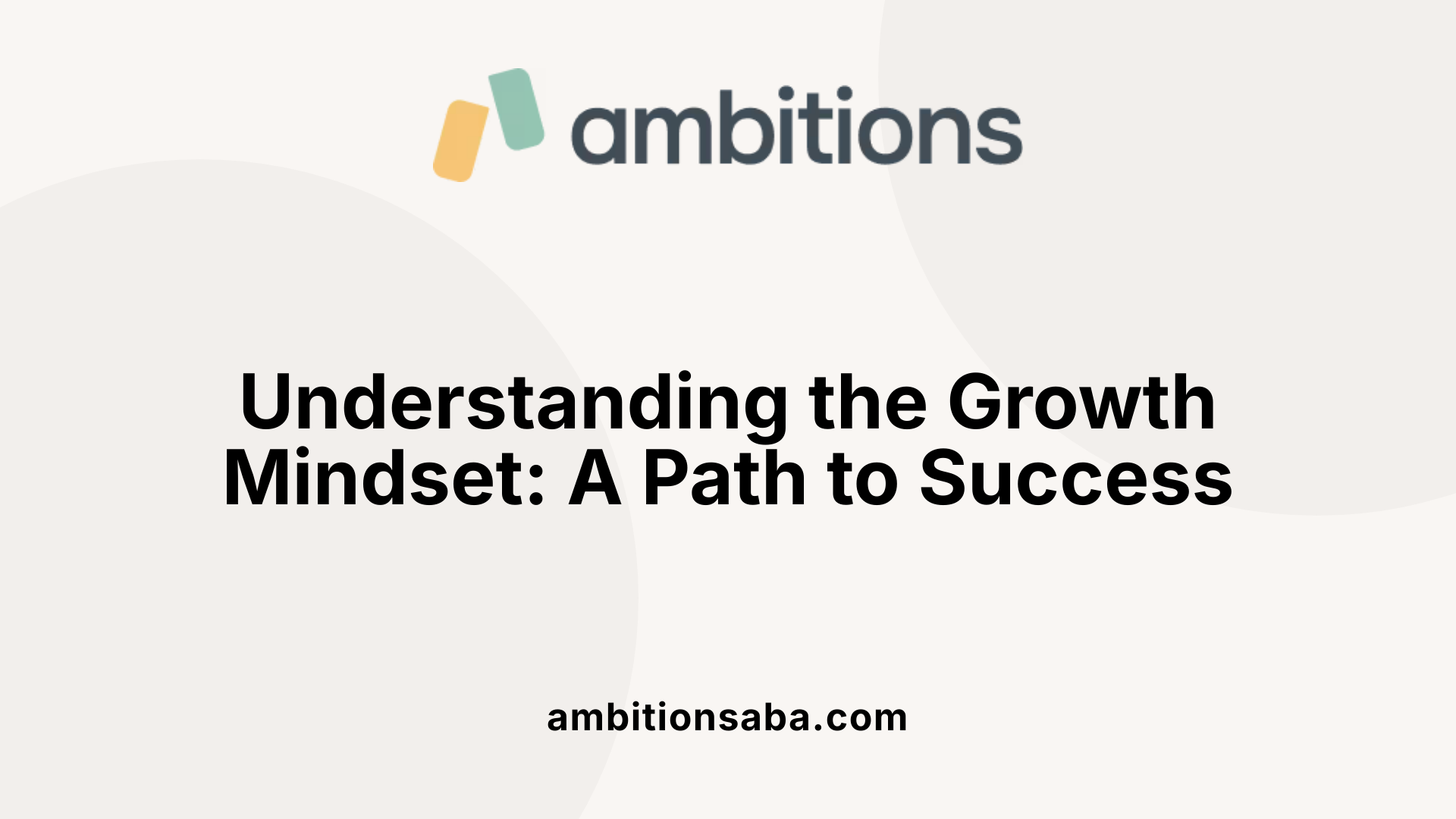
What is the concept of a growth mindset and why is it important?
A growth mindset, as defined by psychologist Carol Dweck, is the belief that abilities and intelligence can be developed through dedication and hard work. This mindset is crucial not only for academic success but also for personal development and resilience. Parents and educators play a pivotal role in fostering this belief by emphasizing effort over innate talent.
Fostering a growth mindset in children nurtures their capacity to handle challenges and setbacks with resilience. Instead of viewing mistakes as failures, children learn that they are opportunities for growth and learning. This fundamental shift in perspective supports lifelong learning and adaptability, essential traits in our rapidly changing world.
Research shows that children who embrace a growth mindset are more motivated, achieve higher academically, and exhibit better social-emotional skills. They are likely to engage with new challenges and persist through difficulties, which enhances not only their academic performance but also their creativity and problem-solving abilities.
Educational frameworks, like the Early Years Learning Framework, highlight the importance of cultivating this mindset through supportive practices by educators and caregivers. Therefore, instilling a growth mindset in children is foundational for their cognitive and emotional development, enabling them to thrive in various environments.
Parental Strategies to Foster a Growth Mindset
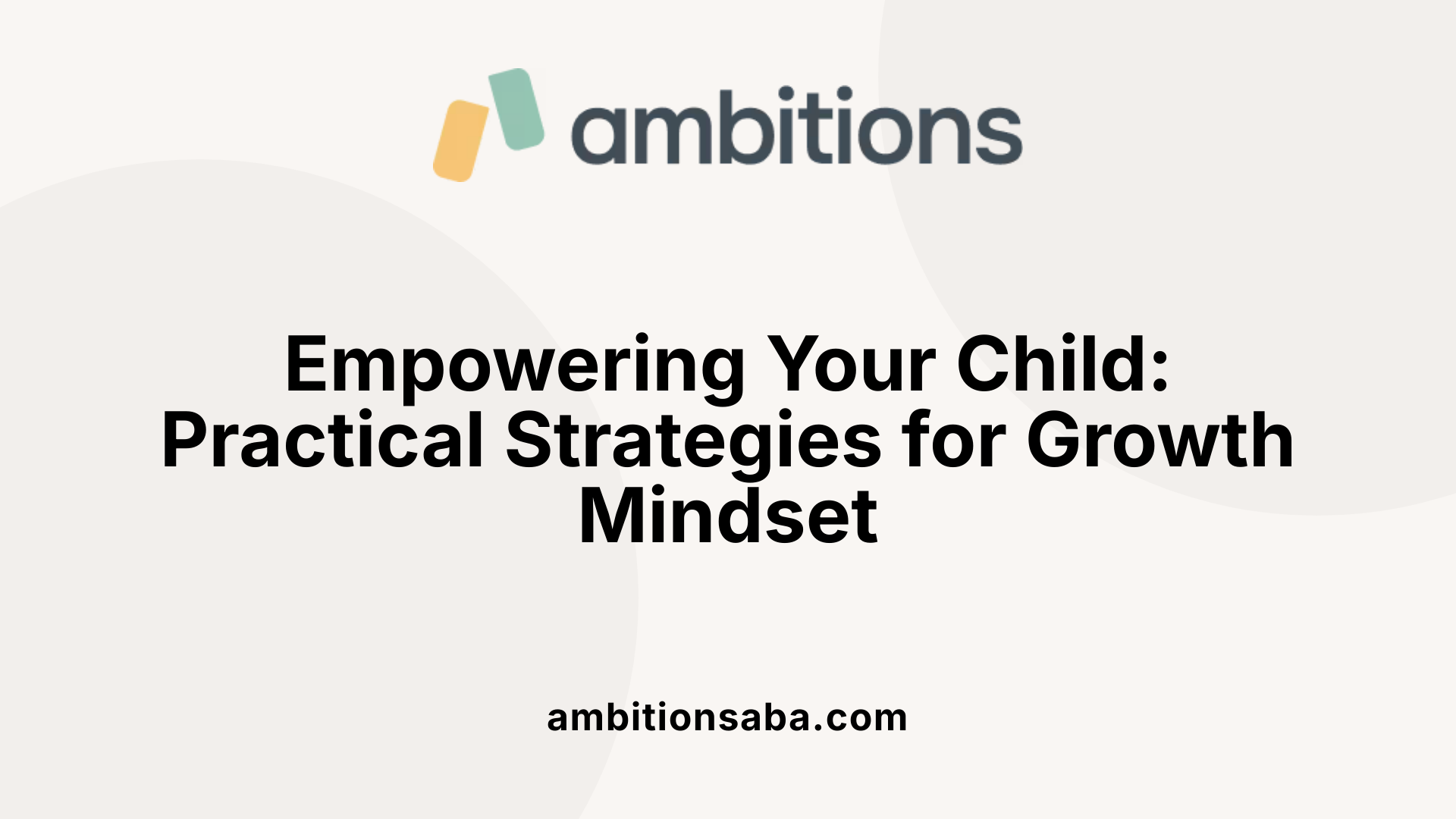
How can parents encourage a growth mindset in their children?
Parents play a crucial role in fostering a growth mindset by emphasizing the importance of effort over innate talent.
Praising Effort Over Talent
Instead of rewarding children for simply achieving high marks or displaying natural skill, parents can focus on their hard work and determination. For example, saying "You worked so hard on that project!" rather than "You’re so smart!" reinforces the belief that success comes from persistence and practice.Modeling Learning Experiences
Children learn best by observing their parents. When parents openly share their challenges and how they cope with difficulties, it sets a powerful example. This approach teaches children that setbacks are part of the learning process, and that perseverance leads to growth. Discussing personal mistakes and the lessons learned normalizes the experience of failure as a pathway to success.Educating About Neuroplasticity
Teaching children about the brain's ability to grow and change through effort can empower them to see challenges as opportunities, rather than threats. Explaining concepts like "the power of yet"—where difficulties are framed as temporary states—encourages a growth mindset. When children grasp that their abilities can develop over time, they become more likely to embrace challenges and remain motivated despite setbacks.
By implementing these strategies and fostering an environment rich in support and encouragement, parents can significantly influence their children's attitudes towards learning and resilience.
Modeling Resilience and Positive Learning Attitudes
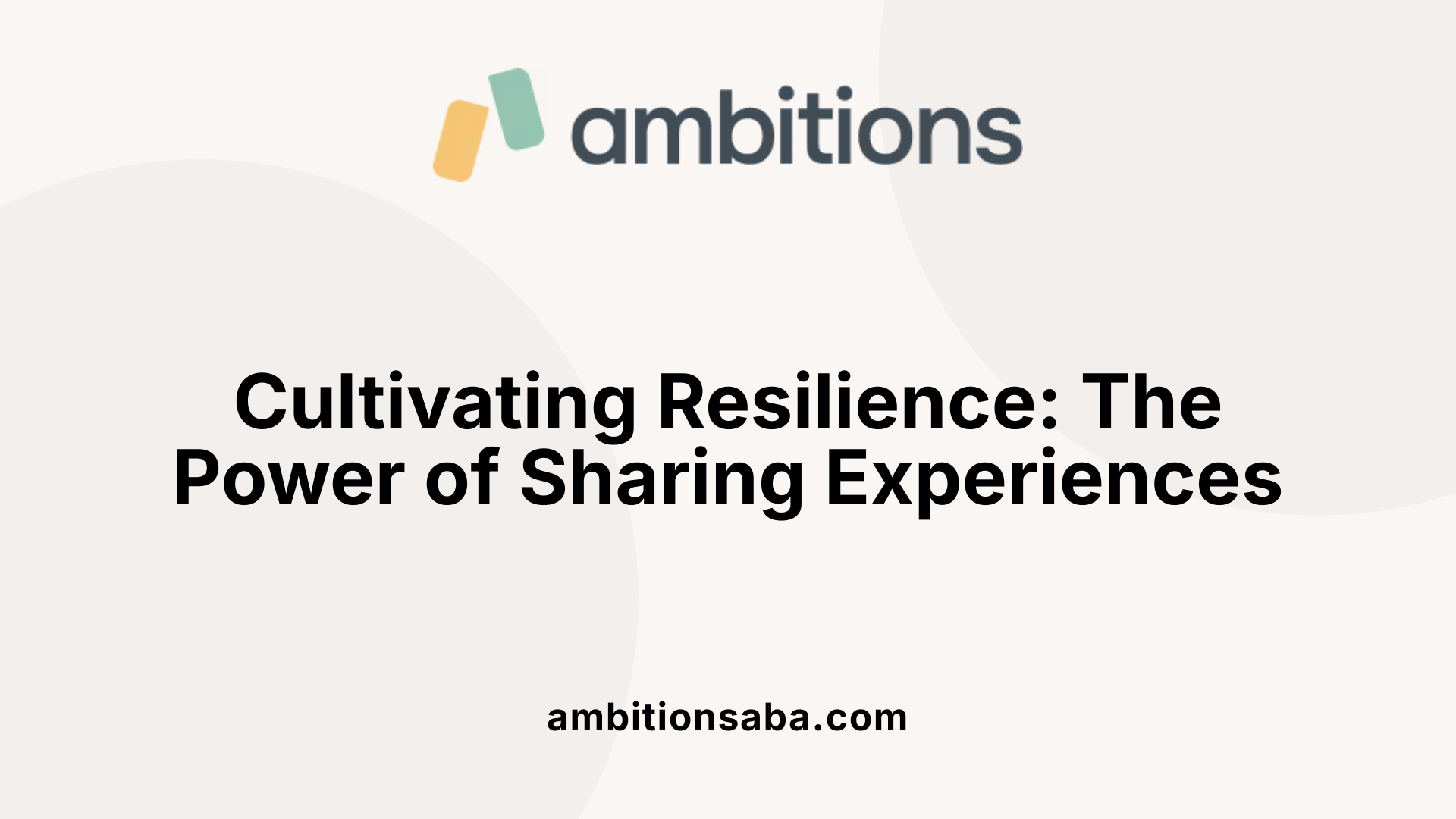
Sharing Experiences of Overcoming Challenges
Parents can foster resilience and positive learning attitudes by openly sharing their own experiences of overcoming challenges. Discussing personal setbacks, such as a difficult project at work or a failed attempt at a hobby, shows children that everyone faces obstacles. This transparency normalizes the struggle and reinforces the idea that persistence leads to growth. By highlighting the process of overcoming these challenges, parents encourage their children to adopt a proactive attitude towards their own hardships.
Framing Mistakes as Learning Opportunities
Another effective strategy is to frame mistakes as learning opportunities. When a child encounters a setback, parents can encourage reflection by asking questions like, "What did you learn from this?" This approach shifts the focus from failure to growth, helping children understand that their worth isn't tied to their mistakes. By discussing what went wrong and brainstorming improvements, parents can guide their children in developing problem-solving skills.
Creative Activities to Build Perseverance
Introducing creative activities can also build perseverance. Cooking a new recipe together or engaging in crafts provides a fun environment for children to practice patience and adaptability. These experiences allow kids to explore their interests while reinforcing the understanding that effort and practice lead to skill development. Parents can celebrate the process of creation rather than solely the final product, enhancing their child's resilience and encouraging a love of learning.
| Strategy | Description | Outcome |
|---|---|---|
| Sharing Experiences | Discuss personal setbacks and solutions | Normalizes struggles |
| Framing Mistakes | Encourage reflection on errors and learnings | Promotes growth mindset |
| Creative Activities | Engage in crafting or cooking together | Builds perseverance & adaptability |
The Role of Parent Involvement in Developing a Growth Mindset
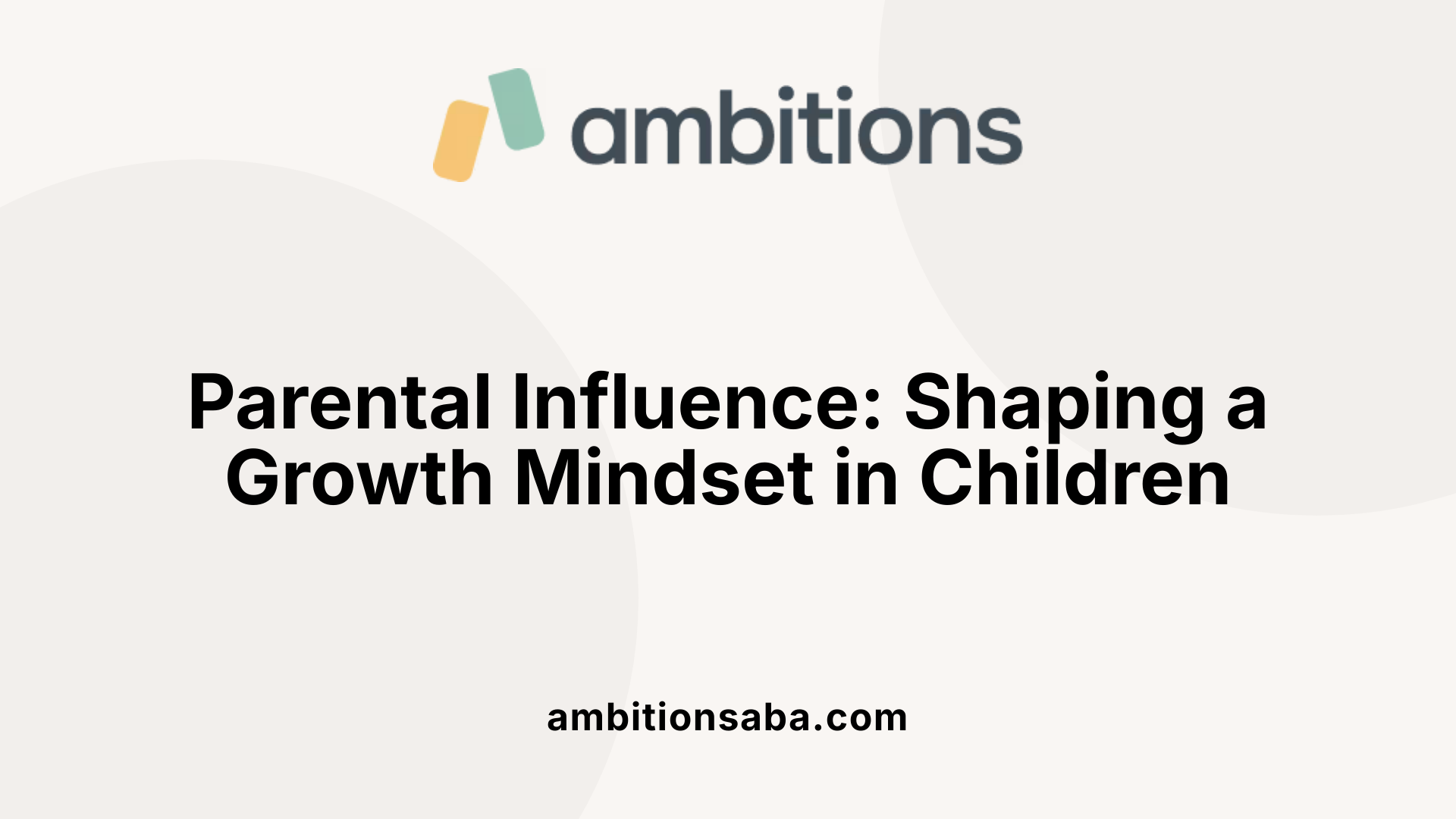
What is the relationship between parent involvement and the development of a growth mindset in children?
Parental involvement is critical for nurturing a child's growth mindset. Parents who believe in the idea that abilities can be developed are more inclined to motivate their children to embrace challenges and improve through effort.
Research indicates that when parents demonstrate a growth mindset, their children are likely to internalize similar beliefs. For instance, when mothers endorse a growth mindset, their children often display a higher tendency to adopt these views. This means that a child's perception of their intelligence and abilities is significantly shaped by their parents' attitudes.
Additionally, parent involvement contributes positively to academic success. Even in cases where socioeconomic status might influence reading achievement, a strong growth mindset remains a powerful predictor of a child's persistence and willingness to learn.
Parents can reinforce this mindset by communicating that effort leads to improvement. By focusing on the process of learning rather than just outcomes, they help children see failures as opportunities for growth, which can ultimately boost their academic performance and resilience.
Research and Methodologies Supporting Growth Mindset Training
What methodologies and research support growth mindset training for parents and children?
Numerous studies highlight the effectiveness of growth mindset training in nurturing resilience and enhancing academic performance in children. Research by Schroder et al. (2017) indicates that fostering a growth mindset can create resilient learners, leading to better educational outcomes. Central to this concept is the understanding that a parent's mindset directly influences their child's approach to challenges. For instance, studies such as those by O'Rourke et al. (2014) and Andersen and Nielsen (2016) illustrate how promoting effort-based praise helps children develop persistence and better academic performance.
Effective strategies for parents
Parents can adopt several practical strategies to foster a growth mindset in their children:
- Praise the Process: Focus on the effort rather than innate talent. Saying "You worked really hard!" rather than "You're so smart!" encourages resilience.
- Encourage Reflection: Help children analyze mistakes. Discussing what went wrong supports learning and emphasizes that failure is an important part of the growth process.
- Storytelling and Activities: Engage in stories that highlight perseverance and resilience, such as 'the hard thing' tasks that challenge children to confront difficult situations with a positive attitude.
Role of educational programs
Educational initiatives, such as the International Baccalaureate (IB) programs, incorporate growth mindset principles by promoting student agency, where learners actively participate in their own educational journey. Frameworks like GEM (Growing Early Mindsets) integrate social and emotional learning, ensuring that children develop a well-rounded approach to challenges. Additionally, programs like Brainology not only educate students on the neuroplasticity of their brains but also equip them with strategies to take control of their learning, thereby reinforcing a growth mindset.
In conclusion, structured research and methodologies underline the need for intentional effort in fostering a growth mindset in both parents and children, ultimately creating a supportive learning environment.
The Power of Parent Training Programs
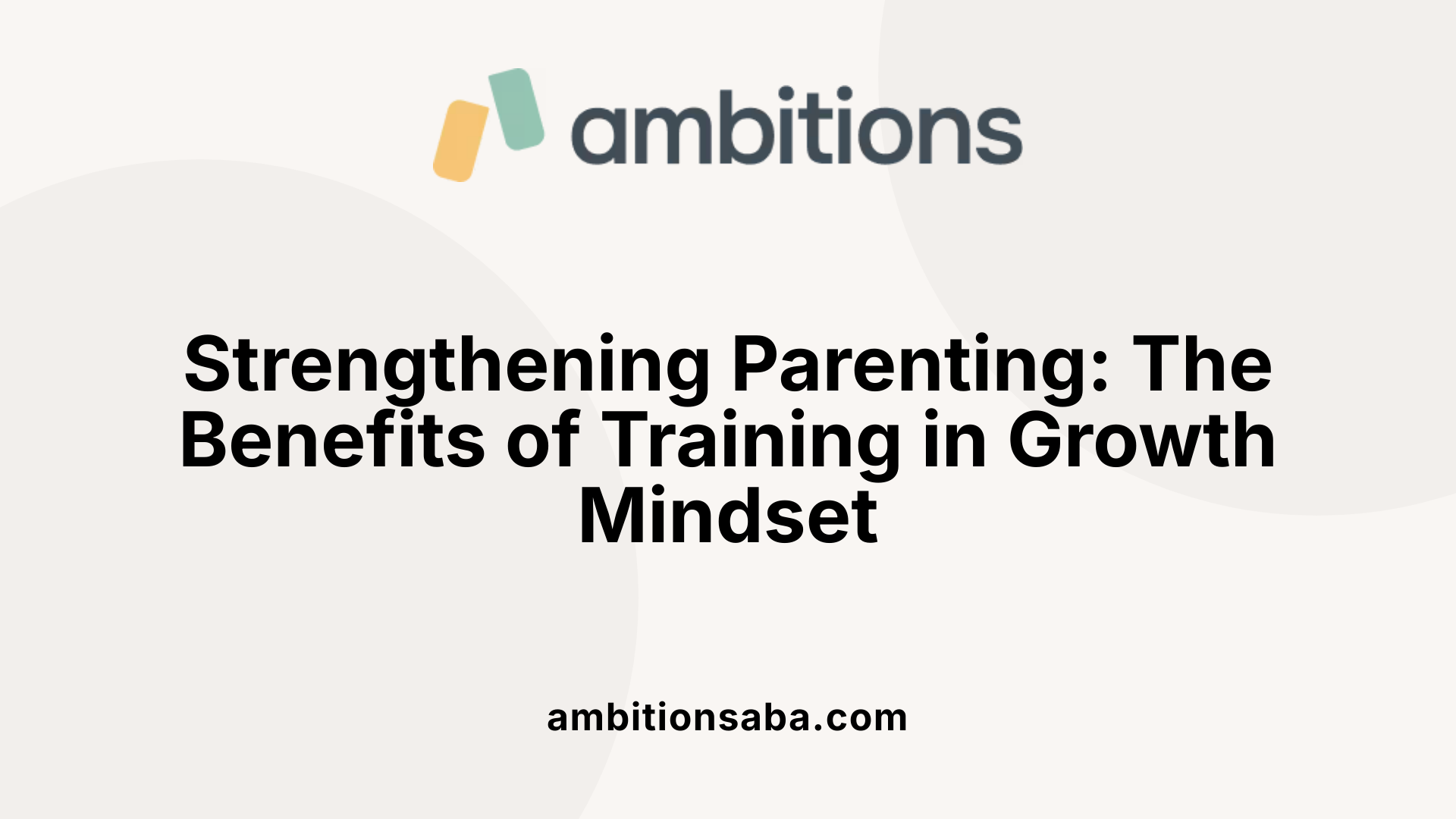
Benefits of Parent Training
Parent training programs that focus on growth mindset principles help parents learn effective strategies to support their children's learning. These programs can boost parental engagement in their child's education and foster a positive learning environment. By understanding how to praise effort rather than merely outcomes, parents can reinforce their children's resilience and motivation.
Adopting Growth Mindset Frameworks
Integrating growth mindset frameworks into parenting practices allows parents to actively engage in their children’s development. Teaching parents about neuroplasticity and that intelligence is not fixed can motivate them to demonstrate these principles in daily interactions with their children. When parents embrace the growth mindset, their behavior positively influences their children's outlook towards challenges.
Enhancing Parent Self-Efficacy
Training programs also aim to enhance parents' self-efficacy, making them feel more competent in supporting their child’s educational journey. When parents feel confident, they are more likely to implement the growth mindset strategies taught in training. This can include celebrating mistakes as learning opportunities and facilitating discussions about perseverance.
| Aspect | Description | Impact on Parents |
|---|---|---|
| Benefits of Training | Nurtures support for children's learning | Increases engagement |
| Growth Mindset Framework | Empowers parents by teaching foundational concepts about intelligence | Changes parenting approaches |
| Enhancing Self-Efficacy | Builds confidence in parents' roles | Encourages consistent support |
Conclusion: A Collaborative Journey
By engaging in training programs and adopting growth mindset practices, parents can profoundly influence their children's development, laying a foundation for resilience, adaptability, and lifelong learning. When parents embrace and model a growth mindset, they not only enhance their child's academic and social achievements but also nurture self-confidence and the courage to face challenges head-on. Together, parents and children can embark on a collaborative journey of growth, discovering new possibilities and reaching their full potential.
References
- Fostering a Growth Mindset in Children - Parents
- The Power of a Growth Mindset in Education and Parenting
- Growth Mindset Programs for Parents - MindsetWorks
- The Importance of Fostering a Growth Mindset in Your Child | Orlando
- How to Encourage a Growth Mindset in Your Child - TherapyWorks
- Inspiring a Growth Mindset Through Family Engagement
- [PDF] Supporting Student Learning Through Parent Mindset Training
- Growth Mindset for Parenting - Any Baby Can
- Growth mindset parenting a guide to raising adaptive and resilient ...

